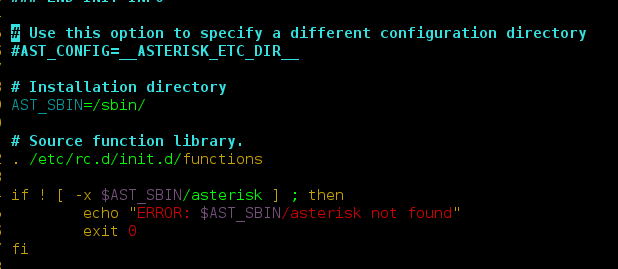Given a string S consisting of N characters and an array M[] of pairs of characters such that any character M[i][0] can be replaced with the character M[i][1] in the string S, the task is to generate all the possible strings formed by replacing some characters of the string with their respective symbols in the array M[].
Examples:
Input: S = “aBc”, M = {‘a’ : ‘$’, ‘B’ : ‘#’, ‘c’ : ‘^’}
Output:
aBc
aB^
a#c
a#^
$Bc
$B^
$#c
$#^Input: S = “a”, M={‘a’ : ‘$’}
Output:
a
$
Approach: The given problem can be solved by using Backtracking to generate all possible strings by replacing each character with the mapped character in the array M[]. Follow the steps below to solve the problem:
- Store all the pairs of the mapped characters in the array M[] in a map, say Map.
- Define a recursive function say generateLetters(S, P), where S is the modified string and P is the index of the current character:
- Check for the base case i.e., if index P equals to the N then print the string S and return.
- Do not change the current character and recursively call for the function, generateLetters(S, P + 1).
- Now, replace the character, S[P] with the respective symbol in the map M and call for the function, generateLetters(S, P+1).
- After completing the above steps, call for the function generateLetters(S, 0) to print all possible strings.
Below is the implementation of the above approach:
C++
// C++ program for the above approach#include <bits/stdc++.h>using namespace std;// Function to generate all possible// string by replacing the characters// with mapped symbolsvoid generateLetters(string S, int P, unordered_map<char, char> M){ // Base Case if (P == S.size()) { cout << S << "\n"; return; } // Function call with the P-th // character not replaced generateLetters(S, P + 1, M); // Replace the P-th character S[P] = M[S[P]]; // Function call with the P-th // character replaced generateLetters(S, P + 1, M); return;}// Driver Codeint main(){ string S = "aBc"; unordered_map<char, char> M; M['a'] = '$'; M['B'] = '#'; M['c'] = '^'; M['d'] = '&'; M['1'] = '*'; M['2'] = '!'; M['E'] = '@'; // Function Call generateLetters(S, 0, M); return 0;} |
Java
// Java program for the above approachimport java.util.HashMap;class GFG{// Function to generate all possible// string by replacing the characters// with mapped symbolspublic static void generateLetters(String S, int P, HashMap<Character, Character> M){ // Base Case if (P == S.length()) { System.out.println(S); return; } // Function call with the P-th // character not replaced generateLetters(S, P + 1, M); // Replace the P-th character S = S.substring(0, P) + M.get(S.charAt(P)) + S.substring(P + 1); // Function call with the P-th // character replaced generateLetters(S, P + 1, M); return;}// Driver Codepublic static void main(String args[]){ String S = "aBc"; HashMap<Character, Character> M = new HashMap<Character, Character>(); M.put('a', '$'); M.put('B', '#'); M.put('c', '^'); M.put('d', '&'); M.put('1', '*'); M.put('2', '!'); M.put('E', '@'); // Function Call generateLetters(S, 0, M);}}// This code is contributed by _saurabh_jaiswal. |
Python3
# Python program for the above approach# Function to generate all possible# string by replacing the characters# with mapped symbolsdef generateLetters(S, P, M): # Base Case if (P == len(S)): print(S); return # Function call with the P-th # character not replaced generateLetters(S, P + 1, M); # Replace the P-th character S = S.replace(S[P], M[S[P]]) # Function call with the P-th # character replaced generateLetters(S, P + 1, M);# Driver CodeS = "aBc";M = {};M['a'] = '$'M['B'] = '#'M['c'] = '^'M['d'] = '&'M['1'] = '*'M['2'] = '!'M['E'] = '@'# Function CallgenerateLetters(S, 0, M);# This code is contributed by _saurabh_jaiswal. |
C#
// C# program for the above approachusing System;using System.Collections.Generic;class GFG{// Function to generate all possible// string by replacing the characters// with mapped symbolsstatic void generateLetters(string S, int P, Dictionary<char, char> M){ // Base Case if (P == S.Length) { Console.WriteLine(S); return; } // Function call with the P-th // character not replaced generateLetters(S, P + 1, M); // Replace the P-th character S = S.Substring(0, P) + M[S[P]] + S.Substring(P + 1); // Function call with the P-th // character replaced generateLetters(S, P + 1, M); return;}// Driver Codepublic static void Main(){ string S = "aBc"; Dictionary<char, char> M = new Dictionary<char,char>(); M.Add('a','$'); M.Add('B','#'); M.Add('c','^'); M.Add('d','&'); M.Add('1','*'); M.Add('2','!'); M.Add('E','@'); // Function Call generateLetters(S, 0, M);}}// This code is contributed by SURENDRA_GANGWAR. |
Javascript
<script>// JavaScript program for the above approach// Function to generate all possible// string by replacing the characters// with mapped symbolsfunction generateLetters(S, P, M){ // Base Case if (P == S.length) { document.write(S + "<br>"); return; } // Function call with the P-th // character not replaced generateLetters(S, P + 1, M); // Replace the P-th character S = S.replace(S.charAt(P), M.get(S[P])) // Function call with the P-th // character replaced generateLetters(S, P + 1, M); return;}// Driver Codelet S = "aBc";let M = new Map();M.set('a', '$');M.set('B', '#');M.set('c', '^');M.set('d', '&');M.set('1', '*');M.set('2', '!');M.set('E', '@');// Function CallgenerateLetters(S, 0, M);// This code is contributed by Potta Lokesh</script> |
aBc aB^ a#c a#^ $Bc $B^ $#c $#^
Time Complexity: O(N*2N)
Auxiliary Space: O(1)
Ready to dive in? Explore our Free Demo Content and join our DSA course, trusted by over 100,000 neveropen!




